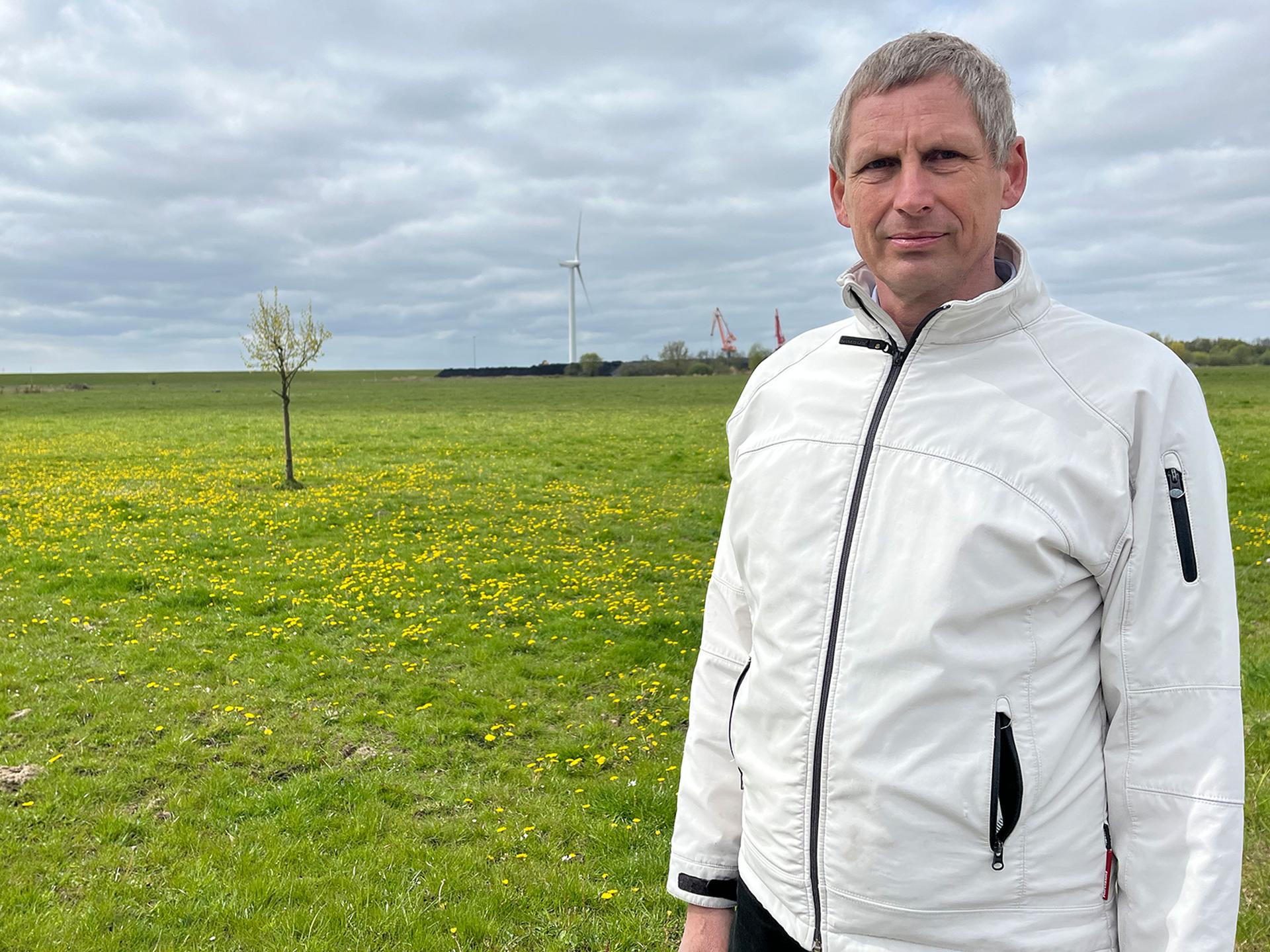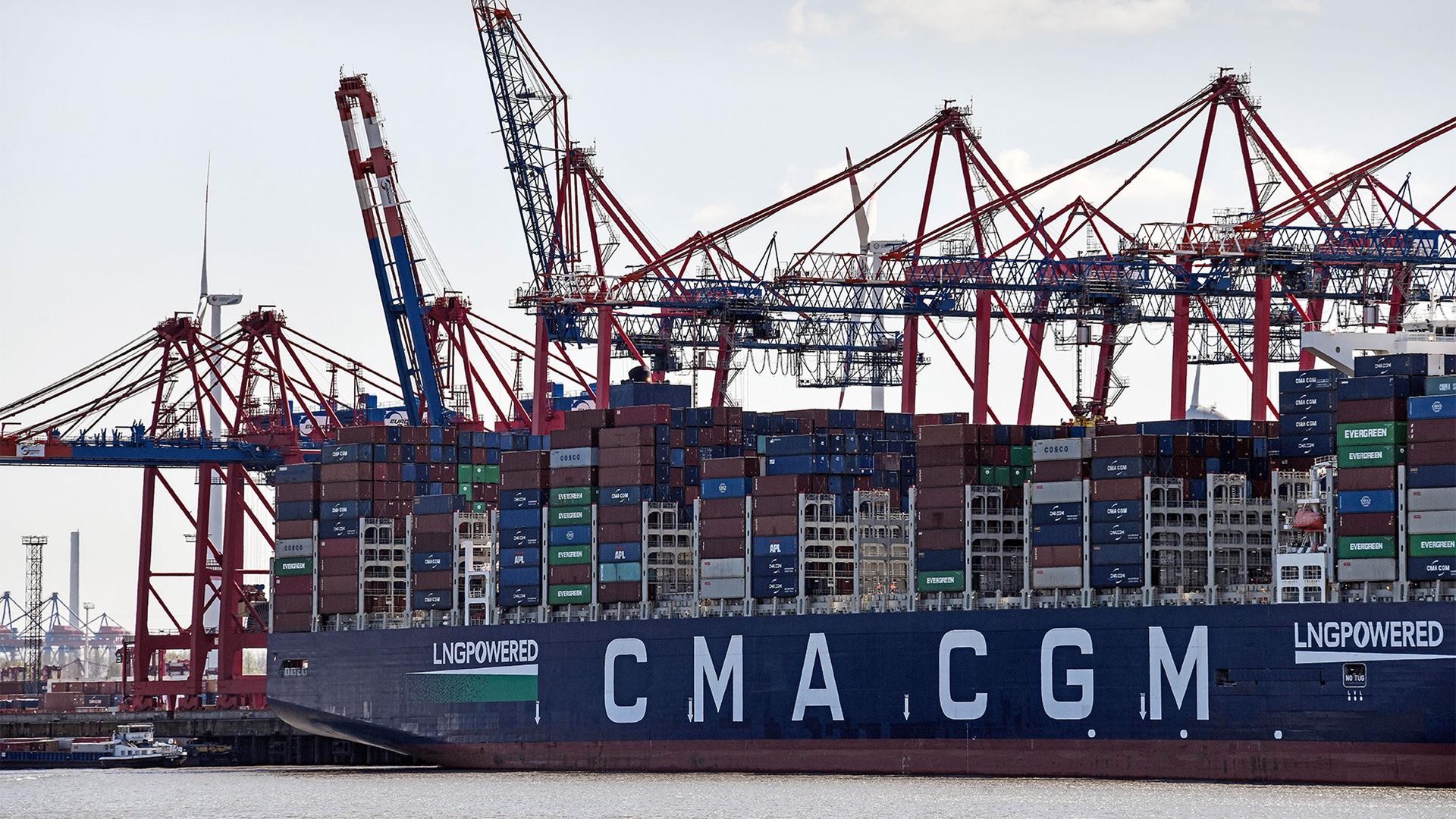In a quest to wean off of Russian natural gas, European countries are racing to build new infrastructure to be able to accept liquified gas from producers further afield.
Analysts are tracking nearly a dozen liquified natural gas (LNG) import facilities across Europe that have been proposed since the beginning of the war in Ukraine — with Germany alone housing six of them.
“This is the scenario that will make us independent,” German Economy and Climate Minister Robert Habeck said, while in the North Sea port town of Wilhelmshaven last week, where he went to sign lease agreements for four new floating natural gas storage facilities.
Gas produced in places like Qatar and the US can be cooled and shipped to these floating facilities, then regassified and distributed into Germany’s network.
Related: As Germany reckons with Russian energy, this village is caught in the crossroads
Before the war in Ukraine started, Germany got more than half of its gas from Russia. It’s knocked that down to about a third in the past few months, but says the new liquefied natural gas infrastructure is necessary to meet its energy needs in the medium-term.
During his visit to Wilhelmshaven, Habeck said the first two floating facilities will start operating up by the beginning of next year, providing about a quarter of the gas that Germany got from Russia before the war, with the rest coming online by May 2023. The government is also planning two permanent facilities to import LNG.
But the plans are not without controversy.
Germany aims to become carbon neutral in 2045, a goal that was enshrined into law last summer. And many environmentalists fear that this new infrastructure will lock-in use of fossil fuels longer than necessary.
“We need to get rid of fossil fuels and we should not build new fossil infrastructure. We see it as moral and economic and ecological madness.”
“We need to get rid of fossil fuels and we should not build new fossil infrastructure,” said Reinhard Knof, who runs a statewide environmental group in Schleswig-Holstein, where one of the floating terminals and a permanent LNG facility. More than half-funded by the federal government is planned in the town of Brunsbüttel.
“We see it as moral and economic and ecological madness,” Knof said, while standing on a tall earthen dike near the mouth of the Elbe River, at an industrial port where the terminal will be built.

Knof was quoting UN Secretary General Antoinio Guterres, who said last month that “investing in new fossil fuel infrastructure is moral and economic madness.”
The move came after the latest UN Intergovernmental Panel on Climate Change report found that using only existing and previously planned fossil fuel infrastructure for the rest of its lifespan would put the most ambitious Paris climate agreement target of limiting warming to 1.5 degrees Celsius out of reach.
New investments, Guterres said, “will soon be stranded assets, a blot on the landscape and a blight on investment portfolios.”
The German government says natural gas will be phased out in the medium-term, and new gas infrastructure will be built to eventually switch over to handle hydrogen fuel.
Related: Germans turn down the heat, drive less and take cold showers to use less Russian energy
Hydrogen produced by renewable energy is considered a small but important, low-emissions energy source for hard-to-decarbonize industries and transport sectors.
It’s not yet clear how much this kind of retrofit would cost, or how quickly it could happen.
Already, Reuters has reported that Qatar is balking at Germany’s desire to sign shorter-term contracts for LNG.
“For us,this seems to be kind of a fossil trap,” said Constantin Zerger, head of energy and climate protection at Environmental Action Germany.
“We are building a new fossil infrastructure in Germany, which is connected to fossil infrastructure overseas, which is connected to new extraction projects. And this will all add up to additional greenhouse gas emissions all around the world.”
“We are building a new fossil infrastructure in Germany, which is connected to fossil infrastructure overseas, which is connected to new extraction projects,” Zerger said. “And this will all add up to additional greenhouse gas emissions all around the world.”
The White House has pledged to more than double LNG exports from the US to Europe by 2030.
And planned gas liquefaction projects have been moving forward faster than they were before the Russian invasion of Ukraine, said S&P Global Commodity Insights natural gas analyst Jack Winters.
“There has been a lot of activity that has picked up,” he said.
Related: A massive security flaw exposed in Germany — then a criminal investigation
Winters said that in the next five years, capacity for liquifying natural gas in the US will jump 60%.
“You would need a production increase from the US producers to be able to feed this … LNG export capacity expected to come online,” he said.
This all brings Constantin Zerger to say something surprising for an environmental activist — that it might be better for Germany to keep burning coal a bit longer than planned, than to spur this kind of natural gas development.
“We will have coal, which is from an environmental point of view, of course, terrible. But it might buy us some time to get the renewables in place.”
“We will have coal, which is from an environmental point of view, of course, terrible. But it might buy us some time to get the renewables in place. And this might be a better option than building new LNG terminals,” he said, citing a concern over a fossil-fuel “lock-in” with expensive and long-lived infrastructure.
Germany already missed its greenhouse gas reduction targets last year, and the economy and climate minister Robert Habeck has said that it’s likely to also miss them this year and next. But, he insists, the new gas infrastructure doesn’t put the country’s longer-term targets at risk.
The mayor of Brunsbüttel, the North Sea town where both a floating and permanent facility are planned, supports the new infrastructure and the jobs and revenue it will bring to his town.
But he acknowledges that Germany is in a tough spot with conflicting goals, as it tries to transition away from Russian energy.
“It’s indescribably difficult,” Martin Schmedtje said. But he also believes the new natural gas terminal is necessary to keep the German economy growing, and give nearby chemical companies time to transition to renewable energy.
“We need this terminal,” he said, voicing an opinion that’s grown widely across Europe since the Russian invasion of Ukraine began.
We want to hear your feedback so we can keep improving our website, theworld.org. Please fill out this quick survey and let us know your thoughts (your answers will be anonymous). Thanks for your time!
